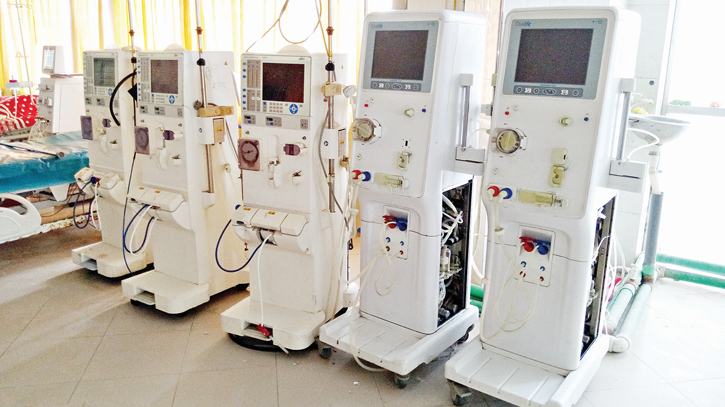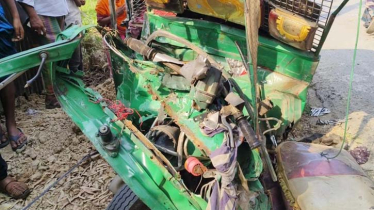
Photo: Messenger
Patients with kidney disease at Satkhira Medical College (SMC) Hospital are facing a critical situation due to the dysfunctional dialysis machines, leading to a severe shortage of dialysis services. Hundreds of patients are at risk of death, as they are only receiving dialysis once a week, despite the medical recommendation of two to three sessions per week.
Local journalist Zahurul Kabir shared his personal struggle, stating that his wife requires dialysis twice a week. He has been selling his property to fund her treatment for kidney disease. Kabir expressed his frustration with the limited availability of machines, which forces patients to undergo shorter sessions, contradicting medical advice.
The situation worsened when the hospital announced that dialysis services would be provided only once a week, starting from Wednesday. Patients and their families are deeply concerned that such a reduction in treatment may be fatal. In response to this dire news, Kabir has been pleading with public representatives and officials for help. He has been advocating for the hospital to maintain dialysis services for kidney patients and has called for the intervention of higher authorities.
Mohiuddin, Brozen, and Zainal, among other patients, have reported that the Kidney Dialysis Unit at the hospital is nearly closed, leaving hundreds of patients in a life-threatening situation. Namitha Rani, the unit's in-charge, informed patients that dialysis would be reduced to once a week, citing the malfunctioning of 17 out of 19 machines. The decision to reduce dialysis sessions was attributed to the hospital director.
Patients like Rabeya and Asma have complained that their requests to repair the machines have been ignored by the hospital director, who has claimed to be "trying" to address the issue. Some patients have shared instances where they were threatened or ignored when seeking solutions from the hospital director.
A patient from Sadar's Fingri, who wished to remain anonymous, recounted an incident where the director threatened patients when they approached him about the limited number of functioning machines. The patient also mentioned that they had to purchase dialyzers, bloodlines, and other medical supplies, which adds to the financial burden.
Zainal, whose mother relies on begging to pay for his dialysis, expressed his fear of death if the hospital stops providing the service. Another patient, Mohiuddin, voiced his concerns about his ability to survive until his next scheduled dialysis appointment, given his family's financial constraints.
When questioned about the situation, the hospital director, Dr. Sheetal Chowdhury, attributed the malfunctioning of the machines to the unskilled operation of the equipment. He stated that only three out of the 19 machines were currently operational. Regarding the repair process, Dr. Chowdhury mentioned that technicians have visited the hospital multiple times but have been unable to fix the machines due to the unavailability of spare parts. He assured that he was making efforts to repair the machines as soon as possible.
Messenger/Faria








